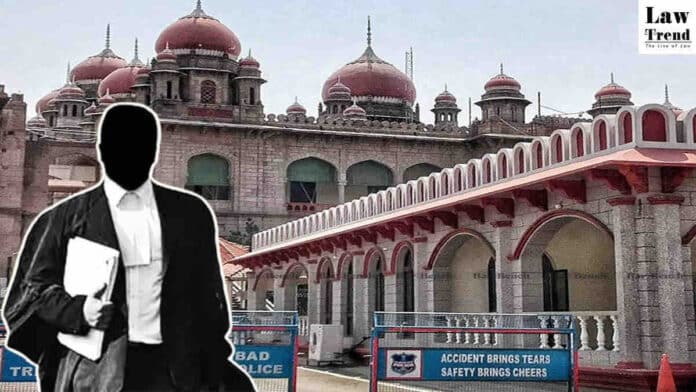The Telangana High Court on Friday affirmed the state’s requirement that candidates for Assistant Public Prosecutor (APP) must have at least three years of active experience as a lawyer in criminal courts. A bench comprising Chief Justice Aparesh Kumar Singh and Justice GM Mohiuddin dismissed a petition that challenged the rule, stating that an employer has the right to set experience criteria for recruitment.
The court emphasized that the role of an APP requires practical knowledge of the legal system. The intention, the bench noted, is to recruit individuals already familiar with the practice of criminal law, rather than recent law school graduates.
“Functioning of criminal courts requires assistance of a particular nature which rule making authorities perceive to be minimum experience at the bar,” Chief Justice Singh observed during the hearing. “The idea is to introduce people who are conversant with criminal cases, not those who have just passed out from law colleges… The whole system will get affected.”
The legal challenge was brought by petitioner Kappera Rajesh, who contested Rule 5 of the Telangana State Prosecution Rules, 1992. The petition also targeted a recruitment notification issued on August 15 that enforced this three-year practice mandate, arguing it was arbitrary and unconstitutional.
Representing the petitioner, advocate Baglekar Akash Kumar argued that the experience requirement was fundamentally flawed because there was no mechanism to verify whether a candidate’s claimed three years of practice were genuine. He suggested that a person could simply claim the experience after spending years in coaching institutes or studying at home, creating an unfair advantage. This, he contended, violated the constitutional rights to equality and equal employment opportunities under Articles 14 and 16.
The counsel drew a parallel to the Supreme Court’s mandate for entry-level judicial magistrates, which included a verification process for their required three years of practice—a safeguard absent in the APP recruitment process.
However, the High Court was not convinced by this line of reasoning. The bench asserted that verifying a candidate’s credentials was a standard procedural matter. “That’s a question of verification of credential produced by candidate,” the court stated, adding that it has happened in the past that “candidature was cancelled because certificate from someone who is not in actual practice.”
The petitioner’s counsel also made a plea on grounds of equity, pointing out the long and irregular gaps between APP recruitment drives. He noted that the last notification was in 2021, and the current one in 2025 only came after court intervention. He argued that such delays could cause talented young lawyers to lose interest and opportunities.
The bench swiftly rejected this final point. “That’s not an argument which prevails,” the court said before dismissing the petition in its entirety.




